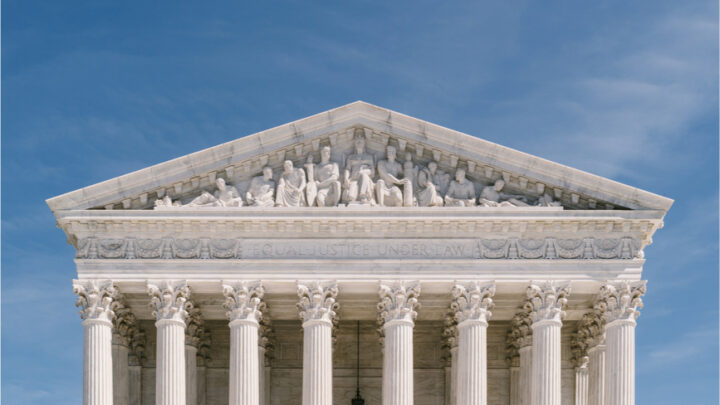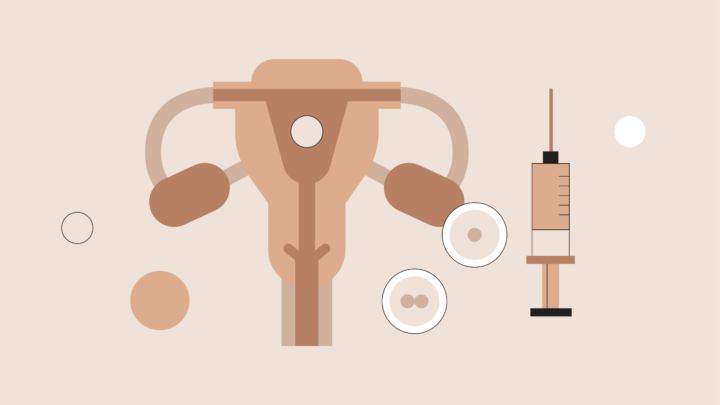
As another U.S. presidential election looms, healthcare topics are once again front and center in the political debates. From women’s reproductive rights and access to safe abortions to universal health care, gun control, and prescription drug costs—these polarizing issues will impact every American, not least the physicians who will see the decisions played out in their medical practices and hospitals.
The Covid-19 pandemic exacerbated an already fraught politicized medical landscape. The emergence of mask mandates and protests, vaccine misinformation, and sensationalized social media coverage, left doctors grappling with a balance between accurate medical information and avoiding partisan biases.
Five years after the start of the pandemic, the politicization of medicine has only deepened. And these political divides have upended some areas of medicine. Many physicians have abandoned their practices and even their states over issues that have derailed their profession. Obstetricians who handle high-risk pregnancies in states with restrictive abortion laws, for example, face tough decisions about how to move forward.
How do these issues affect the growing shortages of physicians in your country? Do regional/national politics affect where you choose to live and work?
In a recent poll of 1,200+ Sermo physicians, 64% said they experienced changes in their medical practices due to politics. In fact, 46% said they have had physicians leave the area due to political changes; while 12% have had new physicians arriving due to politics.
When asked if they would consider changing where they live or practice based on regional political pressures, the physicians responded:
- 37% said yes
- 34% said it depends on the political issue
- 29% said no
Overall, 62% of the Sermo physicians polled believe that politics should not play a role in medical decisions.
Here is more of what Sermo doctors from around the world had to say on this topic, in their own words:
“In the USA, definitely issues about treating people for reproductive reasons or with hormonal medications depends upon the politics of the state.” —Internal Medicine, U.S.
“The growing physician shortages highlight the impact of political decisions on healthcare. The exodus of doctors from regions with restrictive policies, like abortion bans, shows how these pressures can influence where we choose to practice, ultimately affecting patient care.” —G.P, Argentina
“I’m sickened by the notion that physicians were/are swayed by politics and/or religion in such a way that patient care was/is impacted. Patients need to be informed of such beliefs ahead of time.” —Physical Medicine & Rehabilitation (Physiatry), U.S.
“I am the owner physician of a small solo independent internal medicine private [practice]. I am the sole decision maker on policies and the style or pattern of my practice. In the nearly four decades I have been providing my patients with medical care to the best of my ability, politics has never entered into my advice, diagnosis or treatment. Instead I strive to give my patients compassionate care based on scientific evidence. However my practice is not directly impacted by such “hot” issues as abortion, and being located where I am in southwest Michigan, I have not been affected so far by local politics. Because I am independent I can not say what role regional or national politics play in larger practice groups, particularly those owned by the two hospitals in my community. I am aware that trends on the whole do definitely show politics in general (and therefore governmental action) increasingly are putting a constraining pressure on the way physicians may practice medicine.” —Internal Medicine, U.S.
“The growing physician shortages highlight the impact of political decisions on healthcare. The exodus of doctors from regions with restrictive policies, like abortion bans, shows how these pressures can influence where we choose to practice, ultimately affecting patient care.” —G.P, Argentina
“Regional and political factors can impact the workplace in various ways, including gun control laws affecting trauma care in certain regions, LGBTQ+ rights influencing physicians’ decisions to practice in welcoming environments, and environmental policies impacting healthcare access in areas with poor air or water quality. State-specific regulations governing scope of practice for certain specialties can also play a role. To address these issues, solutions include increasing funding for medical education and training programs to address regional shortages, implementing flexible telemedicine options to expand access to care, and encouraging diversity and inclusivity in medical schools to attract physicians from underrepresented groups.” —G.P, U.K.
“It is a difficult question to answer and depends on what is meant by “politics” and there are a lot of nuances to this topic. I think most people agree that medicine and healthcare should be guided and governed by laws that protect the rights of the patient and medical professional alike. There will always be differences on some divisive issues. I personally have no objection to people moving to states where one feels he/she can practice in a way that best aligns with his/her consciences and application of human rights principles. —Pathology, U.S.
“I still live in an area where you can still be independent but new regulations and cost of practicing have gone up so much that employment is now the norm with less time for patients and I think inferior care. If this is considered to be the result of gov’t then I would say politics played a role. I am getting closer to retirement but I want to do it when I am ready and not be forced out.” —Internal Medicine, U.S.
“Politics plays a major role in our job, we need to include this part in our minds now.” —G.P, France
“There have been thousands of unfilled (mainly Consultant) posts in the UK for decades, whilst doctors in specialty training have to compete for posts and their careers often stall as a result. There are hundreds of trained and qualified GPs who cannot find employment, whilst most GP Surgeries employ allied health professionals to manage and be able to cope with the workload. UK politics in the last decade have turned the NHS – once the pride and joy of the country and the envy of most of the world – from a stable and well-functioning system into one that`s disjointed and is struggling for survival. Politics and politicians seldom get things right and the more they tinker with things (especially those that have been working before) the more they will be messed up.” —General Surgery, U.K.
“Health politics plays an important role for doctors. Although it should never influence especially the treatment for patients, but it does. Like the price of drugs, or whether the state finances some treatments or some operations. Also how the doctors are paid, how the nurses are paid, whether a hospital is built or not. How much money is given to health in a certain country. How to get into medical school.” —G.P., Germany
“Politics can be immersed in medicine, but not in decision-making. A politician knows nothing about medicine, unless that politician is a doctor and has experienced the everyday situations that are experienced in a health center or in a higher level establishment.” —G.P., Ecuador
“Yes, I believe that politics influences and affects the place where I work. Due to the same political problems, there is a shortage of resources and medicines, which makes it very difficult to work. There is also a shortage of medical personnel. Most of them go to another country to try their luck and improve their finances, because here they pay very little for our work.” —Family Medicine, Cuba
“Sure. Ever heard of Medicare?” —Family, Medicine, U.S.
“I think that politics does have a great impact on medicine and on us doctors. In my case, in particular, it is very difficult for me to give a patient a treatment because of the lack of resources and medicines and on the other hand, it affects me a lot financially because the payment is very little. But I love my profession and that is why I continue practicing where I am despite the adversities.” —G.P., Cuba
Interested in more? Check back any time and follow us on Facebook, Twitter, and LinkedIn for the latest and greatest in physician insights.
Are you a physician or healthcare practitioner?
Explore the many benefits of Sermo’s medical community and join in on all the exciting conversations when you sign up for free today.
Every day thousands of Sermo member physicians and advanced practice providers from diverse backgrounds and experiences exchange knowledge with each other. Sermo is the original medical social network that empowers today’s healthcare professionals. Over 1.5 million fully verified HCPs across more than 150 countries come to our platform to talk with peers, participate in paid medical studies, solve challenging patient cases, contribute to the world’s largest database of drug ratings—and enjoy a few laughs along the way.














